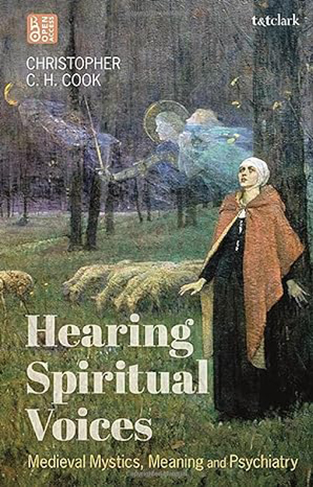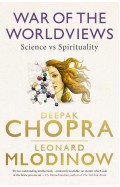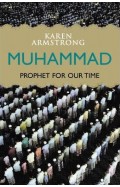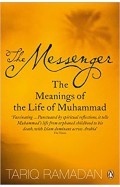- Home
- Books
- Categories
- Non Fiction
- Hearing Spiritual Voices - Medieval Mystics, Meaning and Psychiatry
Hearing Spiritual Voices - Medieval Mystics, Meaning and Psychiatry
By: Christopher C.H. Cook
-
Rs 5,846.75
- Rs 8,995.00
- 35%
You save Rs 3,148.25.
Due to constant currency fluctuation, prices are subject to change with or without notice.
This book takes three 14th century examples of women who heard spiritually significant voices: Margery Kempe, Julian of Norwich, and Joan of Arc. Each of these women, in different ways, has left an enduring legacy in literature and history. Modern psychiatric commentary on the voices that they reported has generally focussed on diagnosis rather than on wider questions of meaning. These commentaries will be used as a lens through which to consider how contemporary psychiatric practice might be enriched by the humanities and enabled to find a more spiritually empathetic, if not also sympathetic, enriching and meaning enhancing perspective on unusual mental phenomena.
This book takes three 14th century examples of women who heard spiritually significant voices: Margery Kempe, Julian of Norwich, and Joan of Arc. Each of these women, in different ways, has left an enduring legacy in literature and history. Modern psychiatric commentary on the voices that they reported has generally focussed on diagnosis rather than on wider questions of meaning. These commentaries will be used as a lens through which to consider how contemporary psychiatric practice might be enriched by the humanities and enabled to find a more spiritually empathetic, if not also sympathetic, enriching and meaning enhancing perspective on unusual mental phenomena.
Hearing Spiritual Voices - Medieval Mystics, Meaning and Psychiatry
By: Christopher C.H. Cook
Rs 5,846.75 Rs 8,995.00 Ex Tax :Rs 5,846.75
Zubin Mehta: A Musical Journey (An Authorized Biography)
By: VOID - Bakhtiar K. Dadabhoy
Rs 472.50 Rs 1,050.00 Ex Tax :Rs 472.50
The Quest For Meaning: Developing A Philosophy Of Pluralism
By: Tariq Ramadan
Rs 1,255.50 Rs 1,395.00 Ex Tax :Rs 1,255.50
War of the Worldviews: Science vs Spirituality
By: Dr Deepak Chopra
Rs 646.75 Rs 995.00 Ex Tax :Rs 646.75
In the Shadow of Shari'ah: Islam, Islamic Law and Democracy in Pakistan
By: Matthew J Nelson
Rs 2,605.50 Rs 2,895.00 Ex Tax :Rs 2,605.50
The Messenger: The Meanings of the Life of Muhammad
By: Tariq Ramadan
Rs 2,335.50 Rs 2,595.00 Ex Tax :Rs 2,335.50
The Ismailis Their History And Doctrines 2nd
By: Farhad Daftary
Rs 581.75 Rs 895.00 Ex Tax :Rs 581.75
No similar books from this author available at the moment.
No recently viewed books available at the moment.
Zubin Mehta: A Musical Journey (An Authorized Biography)
By: VOID - Bakhtiar K. Dadabhoy
Rs 472.50 Rs 1,050.00 Ex Tax :Rs 472.50
Hearing Spiritual Voices - Medieval Mystics, Meaning and Psychiatry
By: Christopher C.H. Cook
Rs 5,846.75 Rs 8,995.00 Ex Tax :Rs 5,846.75














-120x187.jpg?q6)













